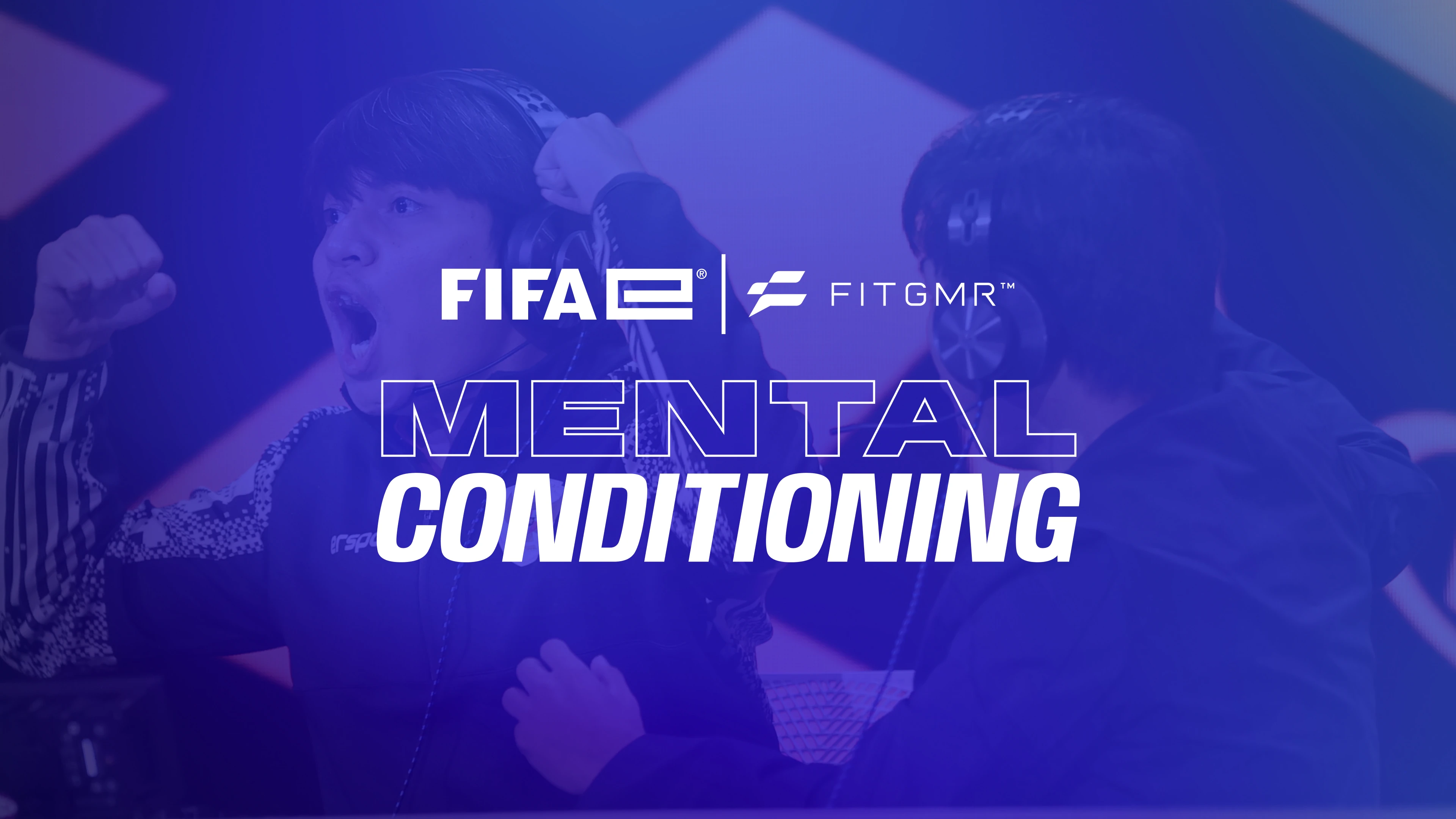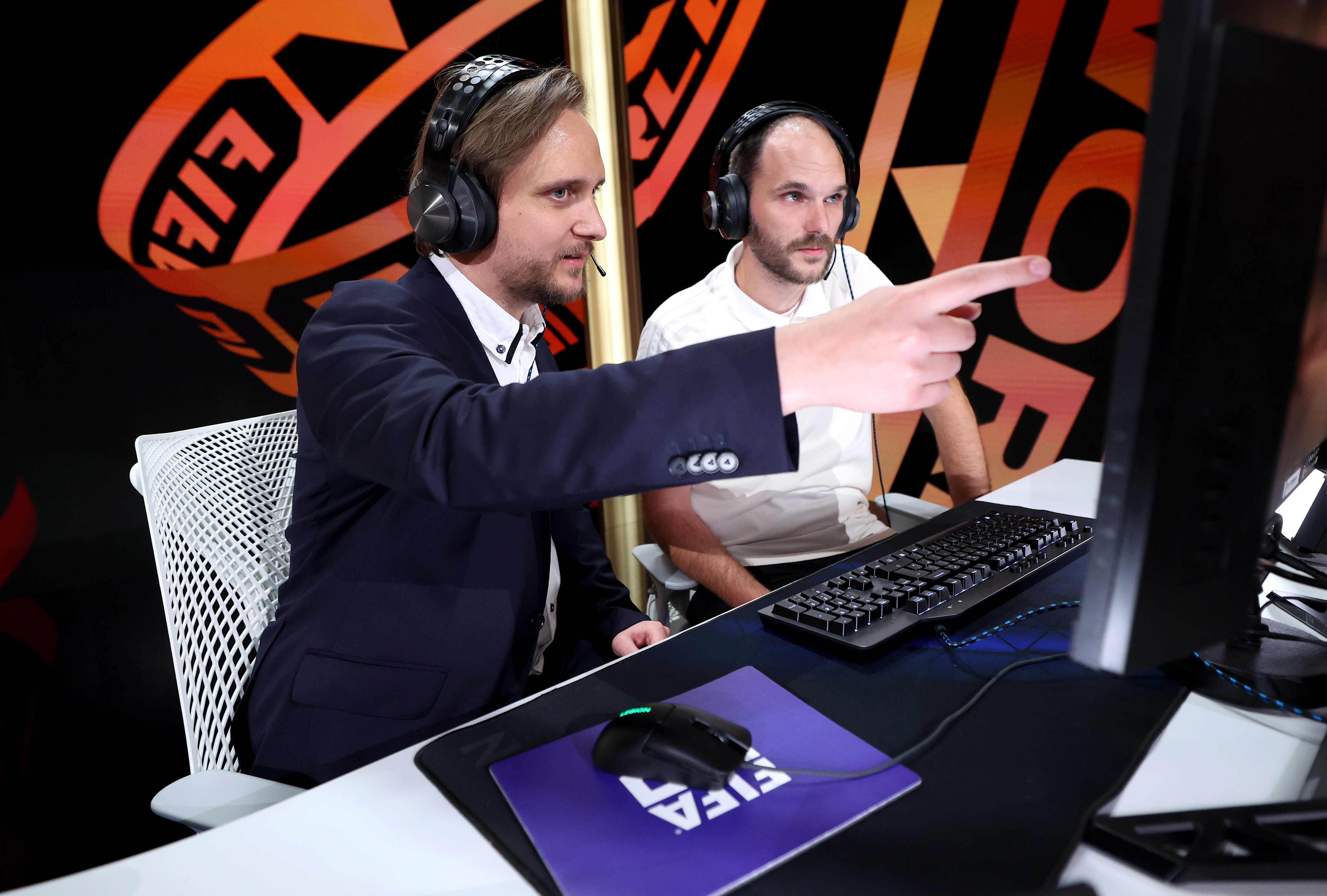
Your browser is not supported.
We are sorry, but the version of your browser is not able to display the content of fifa.gg. Please download the latest version or visit fifa.com.
Visit fifa.com01.09.2025
At the highest level, the true differentiator isn’t just strategy or reflexes, but how well players manage pressure, bounce back from setbacks, and stay focused when it matters most.
Just like elite footballers rely on mental coaches and visualization, today’s top esports athletes are unlocking performance through intentional mental conditioning.
That’s why mental conditioning is a core pillar of player health, and why FIFAe champions awareness, mindfulness, and emotional fitness as essential parts of sustainable competitive performance. Through initiatives like the Good Game Promise and partnerships with mental wellness experts, FIFAe equips players with tools to sharpen their minds and nurture resilience on and off the stage.
FIFAe’s Good Game Promise goes beyond fair play—it’s a blueprint for long-term mental wellbeing. From mindfulness exercises to stress management strategies, FIFAe helps players build mental habits that transform pressure into performance.
We provide players and coaches with science-backed content, practical tools, and shareable resources that embed mental conditioning into every matchday, practice block, and season plan.
Cognitive sharpness, emotional balance, and mental stamina are what separate good from great in elite competition [1].
What mental conditioning unlocks:
Optimized brain function for sharper reactions, smarter plays, and better communication.
Emotional regulation, reducing tilt and encouraging calm decision-making during high-pressure moments.
Team synergy, as mentally present players communicate more clearly and confidently.
Positive mindset, fostering better resilience, enjoyment, and in-game flow state.
FIFAe regularly shares tips and techniques to help players and coaches keep mental health front and center.
Mental strength, like any game mechanic, is built through practice. These strategies help players, coaches, and teams integrate mental resilience into their daily training plans. Integrate mental resilience into your daily routine with these strategies:
Run Mental Check-Ins regularly — before or after sessions — to track your emotional state. Treat your mindset like a performance stat: monitor it, adjust it, improve it.
Identify focus triggers -What throws off your game? Poor sleep, diet, burnout, or screen overload? Map your mental slumps and adjust your prep routine.
Connect actions to outcomes — whether it's pre-game nerves, tilt after a loss, or poor in-game decisions. Identifying these patterns helps you make smarter adjustments.
Practice self-awareness - The more in tune you are with your mental state, the better you’ll clutch when it matters most.
Focused breathing can profoundly affect your mental and physical state in-game. It’s used across elite sports — from Champions League players to Olympic competitors.
Energizing breaths can stimulate your nervous system before competition.
Calming breaths help regulate your heart rate and hormones, promoting composure and focus.
Prevents stress-induced breath-holding by intentionally oxygenating the blood, sharpening your mental clarity during key moments.
Quickly reduce stress and reset between games:
Inhale through your nose for 4 seconds.
Hold your breath for 7 seconds.
Exhale slowly through your mouth for 8 seconds, making a soft whooshing sound.
Repeat the cycle 3–5 times.
Use this between games, during timeouts, or whenever you feel overwhelmed. Regular use, whenever possible, can build long-term resilience and mental clarity.
By practicing the 4-7-8 breathing technique, gamers can quickly engage in a focused and calming breathing exercise, promoting relaxation, reducing stress, and enhancing mental clarity during intense gaming moments [2].
Meditation trains your brain to maintain focus and ignore distractions. It neurologically shifts activity away from the fight-or-flight center toward the executive control center — helping you make better decisions in-game. It has also been shown to improve cognitive performance, emotional regulation, and stress levels [3].
Can help with:
Reducing anxiety
Boosting attention span
Shifting brain activity from emotional centers to executive function – vital for strategic thinking under stress
Start small: just 1–3 minutes a day is enough to begin.
Set a long-term goal: aim for 20 minutes twice a day, building consistency over time.
Furthermore, it is important to monitor and address symptoms of burnout, which can lead to exhaustion, disengagement, and reduced performance [4].
Pro tip: Use meditation before VOD reviews to absorb more, or after matches to reset emotionally.
Build mental training into your daily routine, like mechanical drills or VOD reviews. Start small – even taking a moment to reflect or check in with yourself can help build consistency and long-term mental strength.
Use the 4-7-8 method during breaks or after difficult matches to reset your mental state.
Keep a journal or an app to track emotions before and after matches to build awareness and control. This also helps in identifying recurring mental stressors that could impact performance.
Explore esports-focused mental training platforms like FITGMR.
Integrate mental conditioning into practice — guided breathing, focus routines, or short meditations. Start small, manageable changes that prioritize consistency over big, one-time efforts.
Normalize mental reset strategies by checking in with players emotionally and supporting them in setting clear, meaningful goals that help them stay focused under pressure.
Lead by example: stay composed under pressure and participate in mindfulness exercises with the team. Talk openly about common distractions and create simple “refocusing routines” so players know how to get back on track when they lose focus.
Dedicate 10–15 minutes per week to team-wide mental training for long-term impact.
FIFAe believes mental health is just as crucial as mechanics or strategy in esports success. Mental conditioning equips players to manage pressure, maintain sharpness, and sustain passion for the game. With the right mindset, every player can build resilience, improve focus, and elevate their gameplay—while protecting their wellbeing over the long term.
You don’t need a radical life overhaul—just a consistent plan and commitment to mental fitness.
Breathing Techniques: 4-7-8 method before matches or during stress spikes.
Meditation Apps:FITGMR (for esports-specific focus, starting with FITGMR).
Weekly Mental Conditioning Sessions: 10–15 minutes, ideally led by a coach or mental performance expert.
Self-Evaluation Templates: Simple checklists or journaling prompts to assess mental clarity, stress, and mindset before and after play.
Esports Psychologist Videos: FITGMR app educates on conflict resolution, team dynamics, comms, pre-game routines, tilt management and more.
Explore more tips, exercises, and expert-backed strategies in the FIFAe Healthy Gaming Guide powered by FITGMR – your go-to resource for building resilience, focus, and well-being in competitive play.
Ready to level up your habits? Join FIFA.GG and start tracking today to see the difference for yourself.
[1]Bavelier D, Green CS, Han DH, Renshaw PF, Merzenich MM, Gentile DA. Brains on video games. Nat Rev Neurosci. 2011 Nov 18;12(12):763–8.
[2]Van den Berg, D. P. G., de Bont, P. A. J. M., van der Vleugel, B. M., de Roos, C., de Jongh, A., Van Minnen, A., & Van der Gaag, M. (2015). Prolonged exposure vs eye movement desensitization and reprocessing vs waiting list for posttraumatic stress disorder in patients with a psychotic disorder: A randomized clinical trial. JAMA Psychiatry, 72(3), 259–267. https://doi.org/10.1001/jamapsychiatry.2014.2637
[3]Alderman, B. L., Olson, R. L., Brush, C. J., & Shors, T. J. (2016). MAP training: combining meditation and aerobic exercise reduces depression and rumination while enhancing synchronized brain activity. Translational Psychiatry, 6(10), e726.
[4]Kotiadis, K., & Kotsopoulos, S. (2019). Burnout in esports: examining the role of social support and loneliness. International Journal of Gaming and Computer-Mediated Simulations, 11(2), 55-73.

